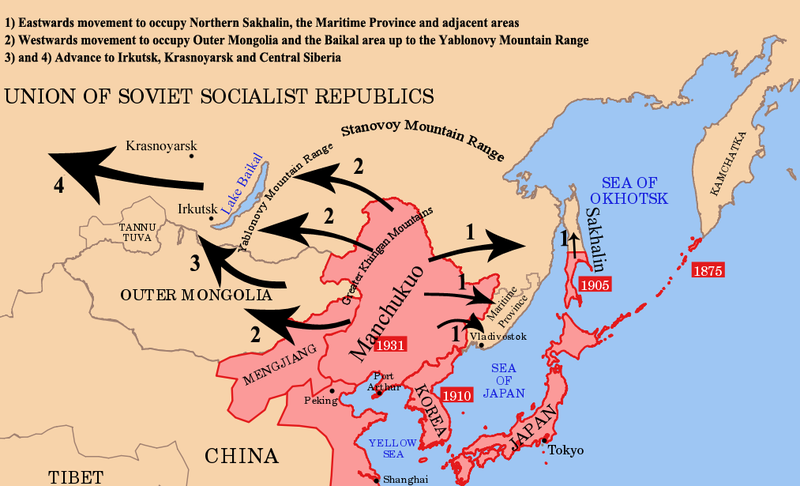There are three, possibly four, major areas of international strife and all are getting worse as we watch.
Europe is trying to deal with Vladimir Putin and the new Russia. It is not doing well.
There was a palpable tone shift in U.S. policy toward Ukraine this week, when the Obama administration signaled that it was ready to consider sending the country lethal military aid. A confluence of factors is pushing President Obama toward this decision. The fragile ceasefire brokered in September between Ukraine and Russian-backed separatists has failed, manifested in the series of recent and high-profile separatist advances against the Ukrainian military this week. Bipartisan congressional support for sending weapons to Ukraine, championed by Sens. John McCain (R-Ariz.) and Robert Menendez (D-N.J.), as well as a newly released report by former senior U.S. and European officials recommending lethal military aid for the embattled country, have also contributed to Obama and his tight inner circle of foreign policy advisers reconsidering the lethal aid option.
Will this happen ? I doubt it.
As Kadri Liik of the European Council on Foreign Relations pointed out recently , many Western leaders persist in seeing the Ukraine invasion as a hiccup in relations with Russia that can be smoothed over, rather than as a demonstration that Mr. Putin’s agenda is fundamentally at odds with Europe’s security interests and its values. Because of their attachment to the hiccup theory, governments — including the Obama administration — have refused to take steps, such as providing the Ukrainian government with defensive weapons, that could help stop Mr. Putin’s aggression. Instead, they concoct futile schemes for “reengaging” the Russian ruler.
The next crisis will be the end of NATO.
Late this week, the Obama administration unveiled its new National Security Strategy, amid less than fanfare, with the execrable Susan Rice explaining in “remain calm, all is well!” fashion that things are really much better globally than they look. This White House’s new foreign policy mantra is Strategic Patience, which seems to be the been-to-grad-school version of “don’t do stupid shit.” Since nobody inside the Beltway is taking this eleventh-hour effort to articulate Obama’s security strategy seriously, it’s doubtful anyone abroad, much less in Moscow, will either.
Soon, Putin will turn his gaze on the Baltics.
Jaws dropped this week when Anders Fogh Rasmussen, who until recently was NATO’s civilian head, stated that it is highly likely that Russia will soon stage a violent provocation against a Baltic state, which being NATO countries, will cause a crisis over the Alliance’s Article 5 provision for collective self-defense. Rasmussen merely said what all defense experts who understand Putin already know, but this was not the sort of reality-based assessment that Western politicians are used to hearing.
NATO has disarmed and is in panic mode now if they have to face Russia, weak as it is in the long term. As Keynes said, “In the long term we are all dead.” We are partly responsible for this state of affairs.
Not all the fault for this sorry state of affairs lies in Europe. Here America has played an insidious role too, encouraging spending on niche missions for the Alliance at the expense of traditional defense. Hence the fact that Baltic navies have considerable counter-mine capabilities — this being an unsexy mission that the U.S. Navy hates to do — yet hardly any ability to police their maritime borders against intruding Russians. To make matters worse, since 2001 the Americans have encouraged NATO partners to spend considerable amounts of their limited defense budgets on America’s losing war in Afghanistan.
We should have gotten out in 2009. The absurd Rules of Engagement are only part of it.
Now, we face another major threat in the Middle East, Theater Two.
For the situation with Iran, I have long relied on the writing of Spengler.
Dying civilizations are the most dangerous, and Iran is dying. Its total fertility rate probably stands at just 1.6 children per female, the same level as Western Europe, a catastrophic decline from 7 children per female in the early 1980s. Iran’s present youth bulge will turn into an elderly dependent problem worse than Europe’s in the next generation and the country will collapse. That is why war is likely, if not entirely inevitable.
The rulers of Iran have shown no moderation of their messianic beliefs and their willingness to destroy themselves to bring about the coming of the Twelfth Imam.
Twelver Shi‘a believe that al-Mahdi was born in 869 (15 Sha‘bin 255 AH) and assumed Imamate at 5 years of age following the death of his father Hasan al-Askari. In the early years of his Imamate he would only contact his followers through The Four Deputies. After a 72-year period, known as Minor Occultation, a few days before the death of his fourth deputy Abul Hasan Ali ibn Muhammad al-Samarri in 941, he is believed to have sent his followers a letter. In that letter that was transmitted by al-Samarri he declared the beginning of Major Occultation during which Mahdi is not in contact with his followers.
The coming of the Imam is part of the end of the world and the rulers of Iran are “Twelvers.”
Shi’as believe that Imam al-Mahdi will reappear when the world has fallen into chaos and civil war emerges between the human race for no reason. At this time, it is believed, half of the true believers will ride from Yemen carrying white flags to Makkah, while the other half will ride from Karbalaa’, in the `Iraq, carrying black flags to Makkah. At this time, Imam al-Mahdi will come wielding `Ali’s Sword, Zulfiqar , the Double-Bladed Sword. He will also come and reveal the texts in his possession, such as al-Jafr and al-Jamia.
The Shi’ites have this belief as part of their religion and the rulers of Iran seem to be sincere in their beliefs, which is why Obama is insane to consider them rational.
The Sunni equivalent is the new group called Islamic State in Syria and various other names.
The recent rise in terrorist attacks is only one part of the problem. We also see the collapse of Iraq after Obama removed all US troops.
What are we going to do about all this? Probably nothing as Obama has a master plan that will solve all our problems. He will make friends with our worst enemies.
What about China ? We were going to “pivot to Asia.”
One question is whether China is stable. There are questions about China’s economic future.
Beijing can manage a rapidly declining pace of credit creation, which must inevitably result in much slower although healthier GDP growth. Or Beijing can allow enough credit growth to prevent a further slowdown but, once the perpetual rolling-over of bad loans absorbs most of the country’s loan creation capacity, it will lose control of growth altogether and growth will collapse.
The choice, in other words, is not between hard landing and soft landing. China will either choose a “long landing”, in which growth rates drop sharply but in a controlled way such that unemployment remains reasonable even as GDP growth drops to 3% or less, or it will choose what analysts will at first hail as a soft landing – a few years of continued growth of 6-7% – followed by a collapse in growth and soaring unemployment.
What would happen then ? I just don’t see a war with China in our future, partly because neither of us can afford it. China is threatening its neighbors, like Japan and the Philippines, but we are unlikely to intervene. Our former allies in the east are now seeking help from each other as Obama destroys the US influence.







